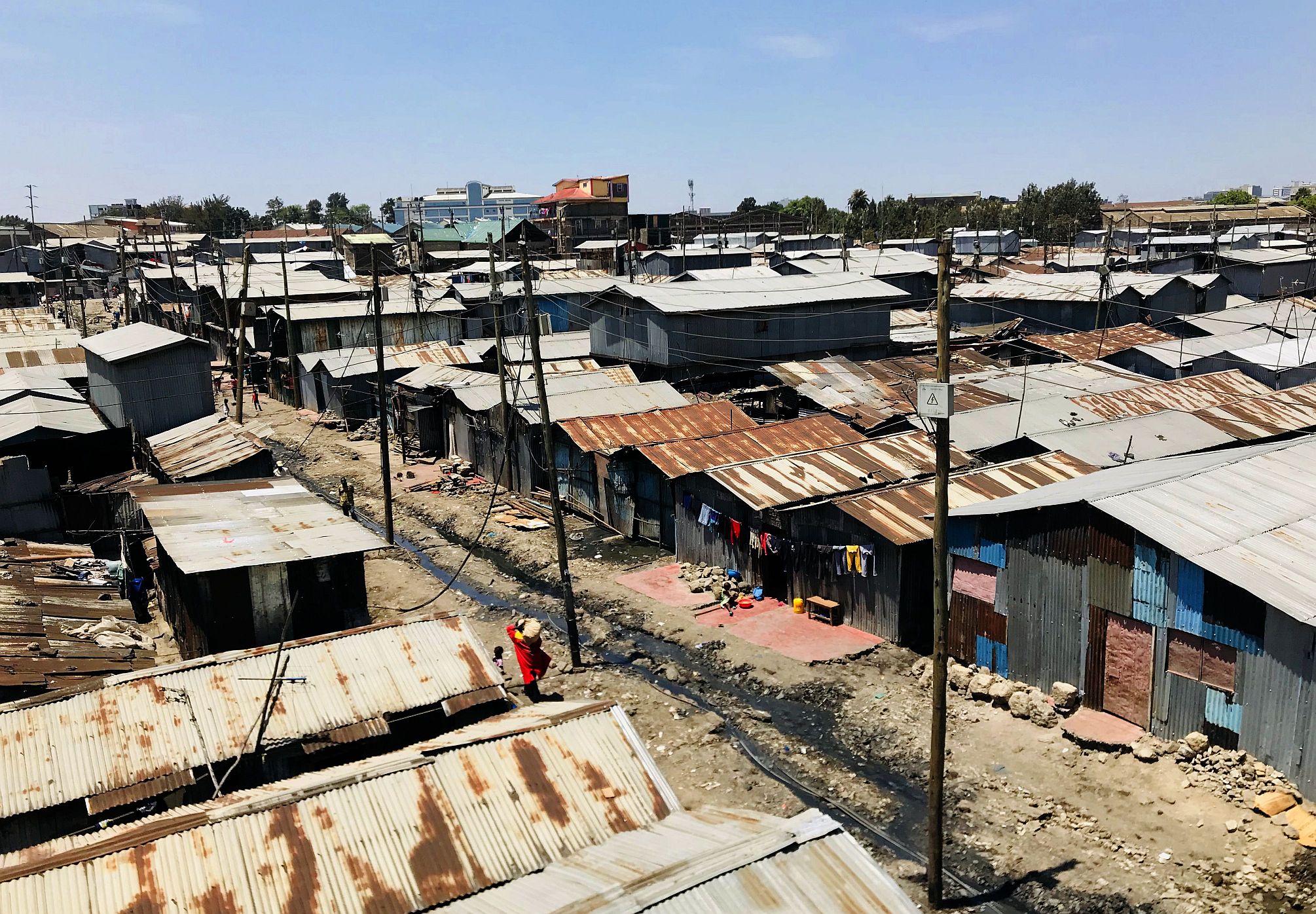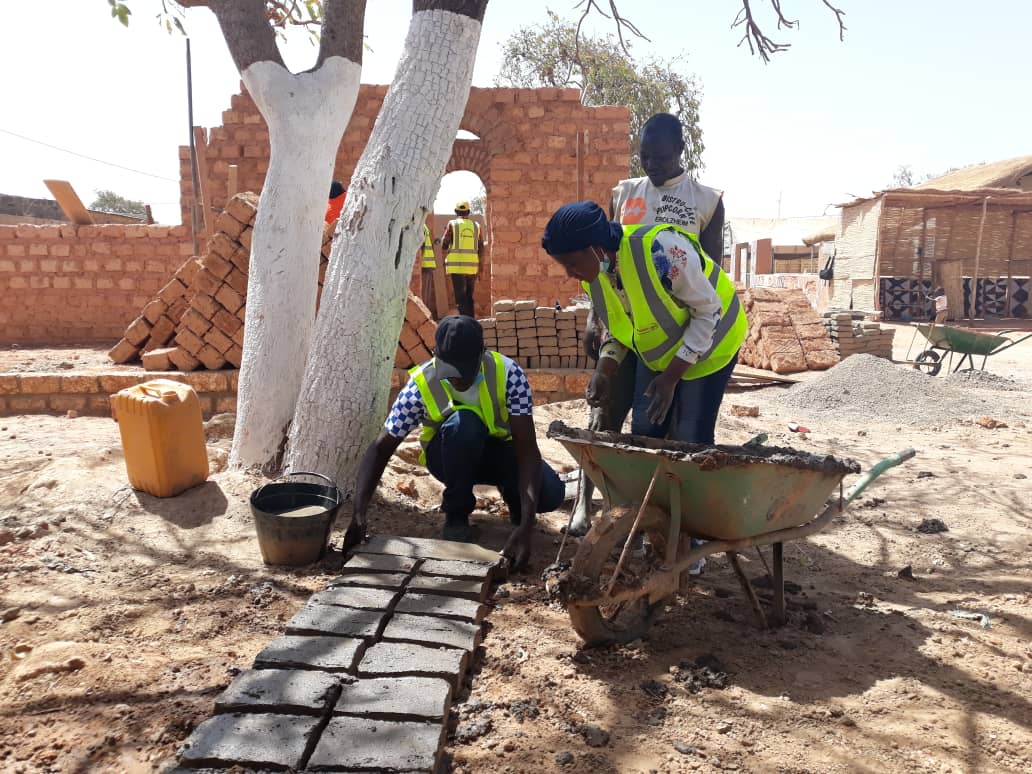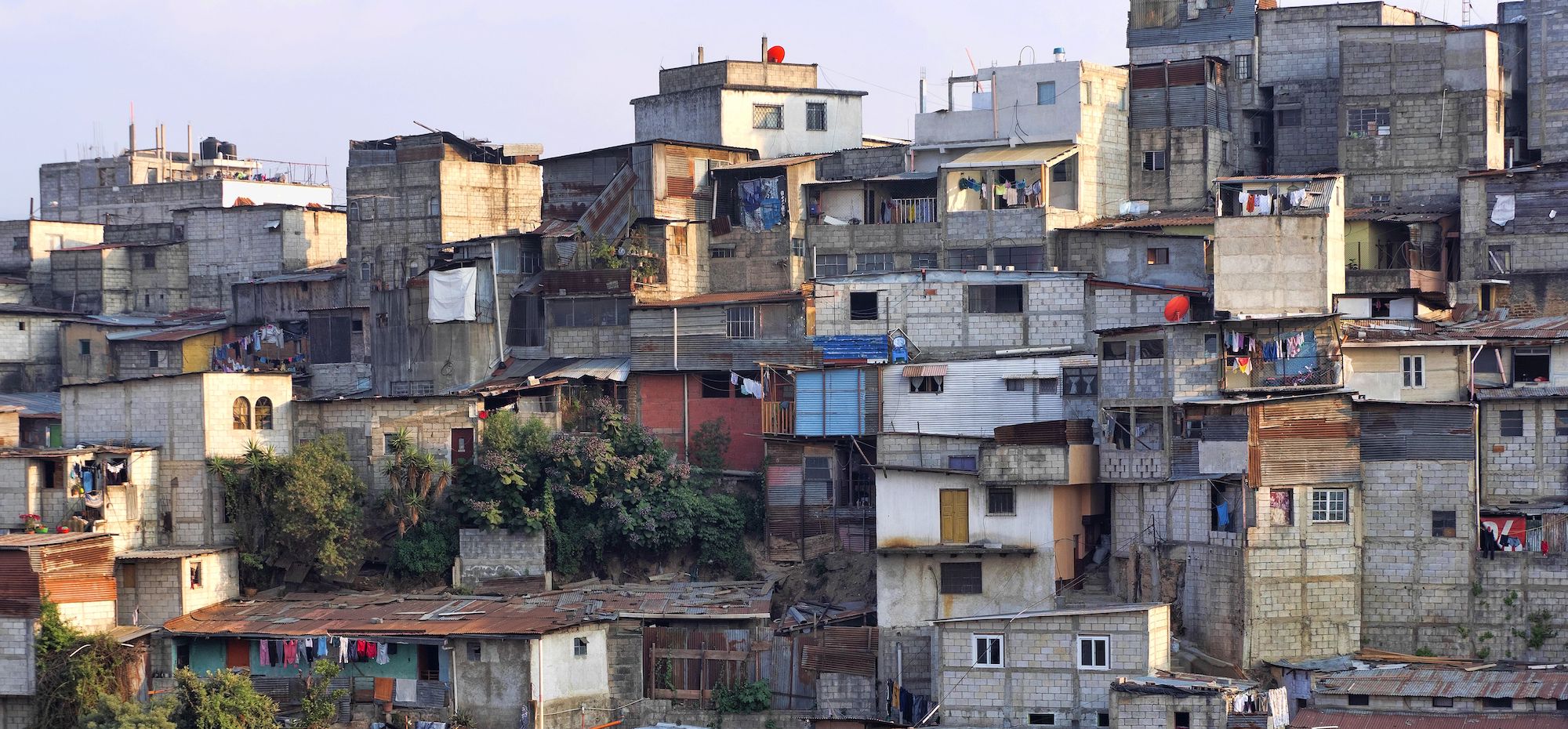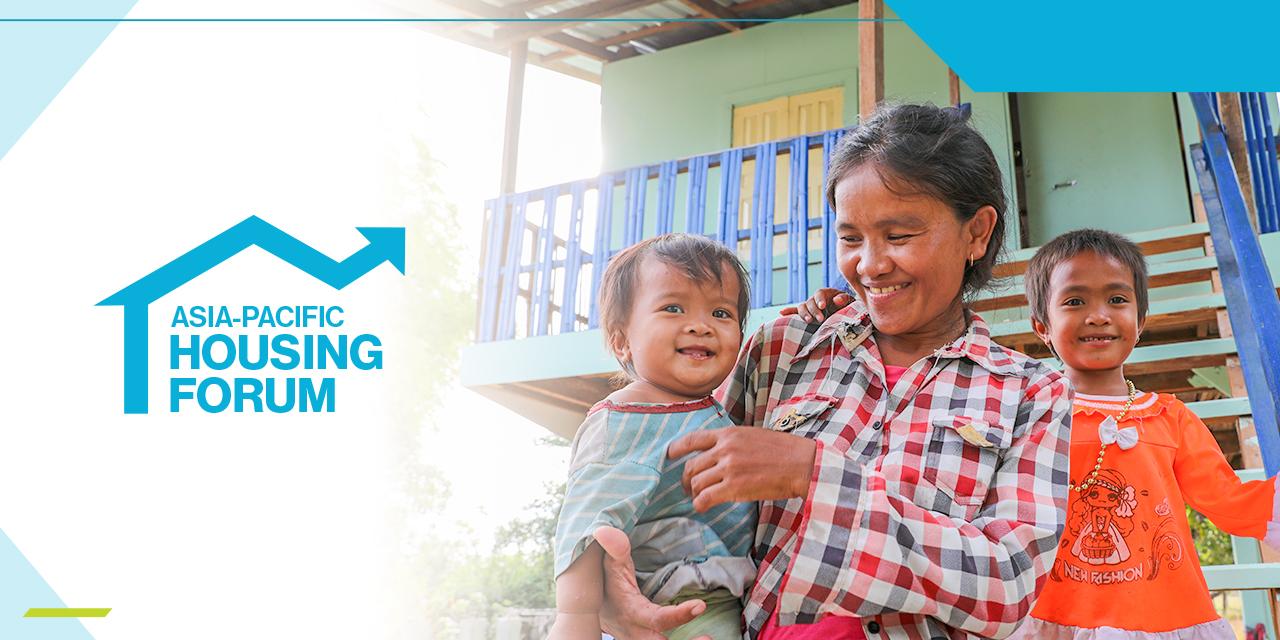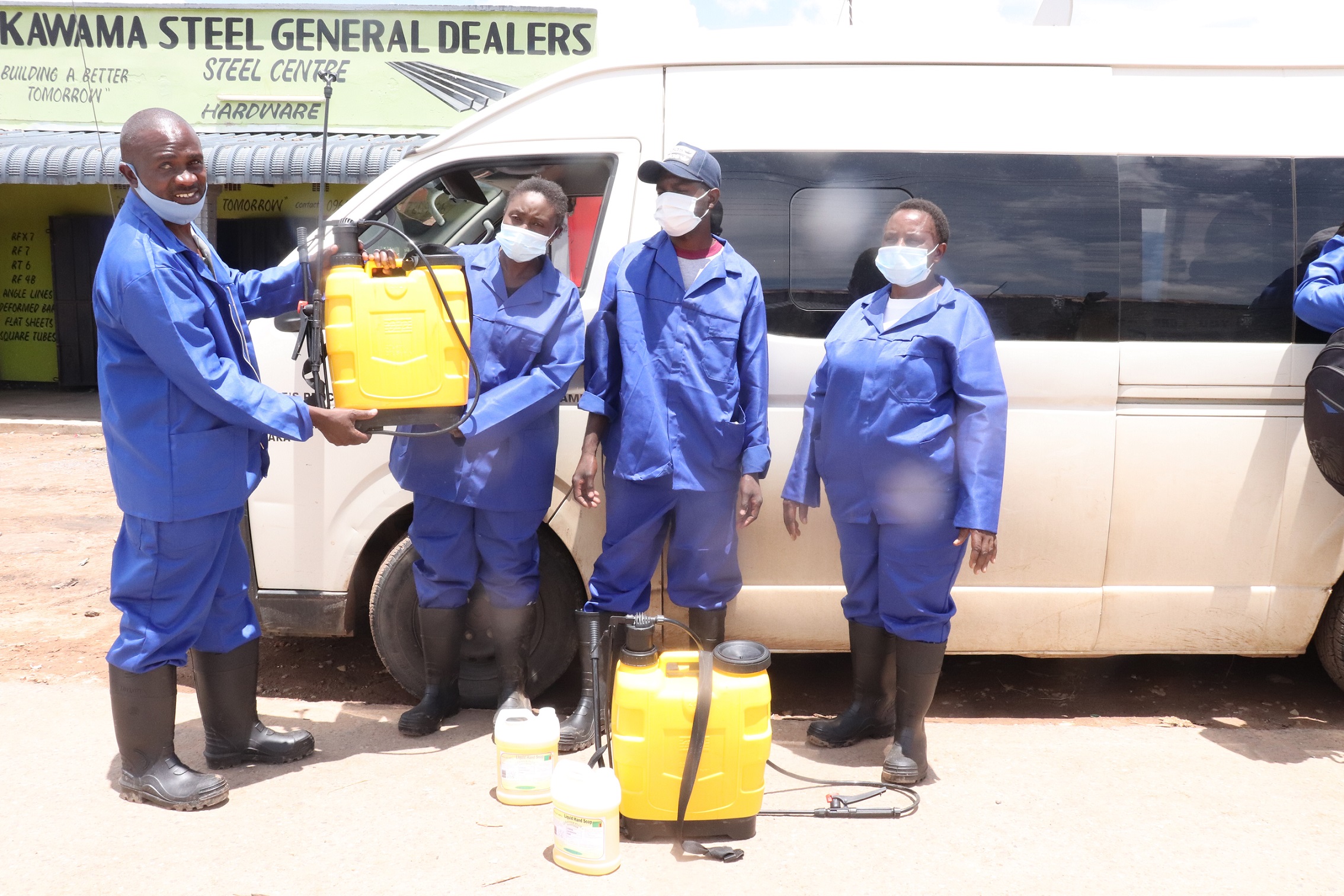Cities Alliance with financial support from the World Bank has launched a new initiative to provide funding to five affiliates of Slum Dwellers International (SDI) to collect slum level data to support COVID-19 hotspot prediction analysis.
The COVID-19 pandemic has levelled unprecedented challenges upon cities across the globe. Given their high population densities and concentration of economic activity, cities are on the frontlines of trying to stem the tide of infections. As the world awaits the widespread rollout of a vaccine, prevention through social distancing, mask-wearing, and hand-washing remains the best means of containing the virus’s spread.
For the world’s one billion slum dwellers, such measures present a challenge as most live in overcrowded urban settlements with inadequate access to basic water and sanitation services. For such communities, crowded communal taps and toilets are the norm and constitute significant contagion risk hotspots.
To support cities to prioritize and target resources to the most vulnerable the World Bank’s Global Practice of Urban, Resilience and Land (GPURL) developed a rapid deployment tool to identify hotspots where the risk of exposure and community contagion is likely to be high. The tool identifies hotspots for exposure and vulnerability, based on:
- The practical inability for keeping people apart, based on a combination of population density and liveable floor space that does not allow for 2 meters of physical distancing.
- Conditions where, even under lockdown, people might have little option but to cluster (e.g., to access public toilets and water pumps).
The analysis requires three primary datasets: population, building heights, and location of key services. Since data coverage on informal settlements is notoriously scarce, this project supports a partnership between the World Bank and SDI to fill critical data gaps.
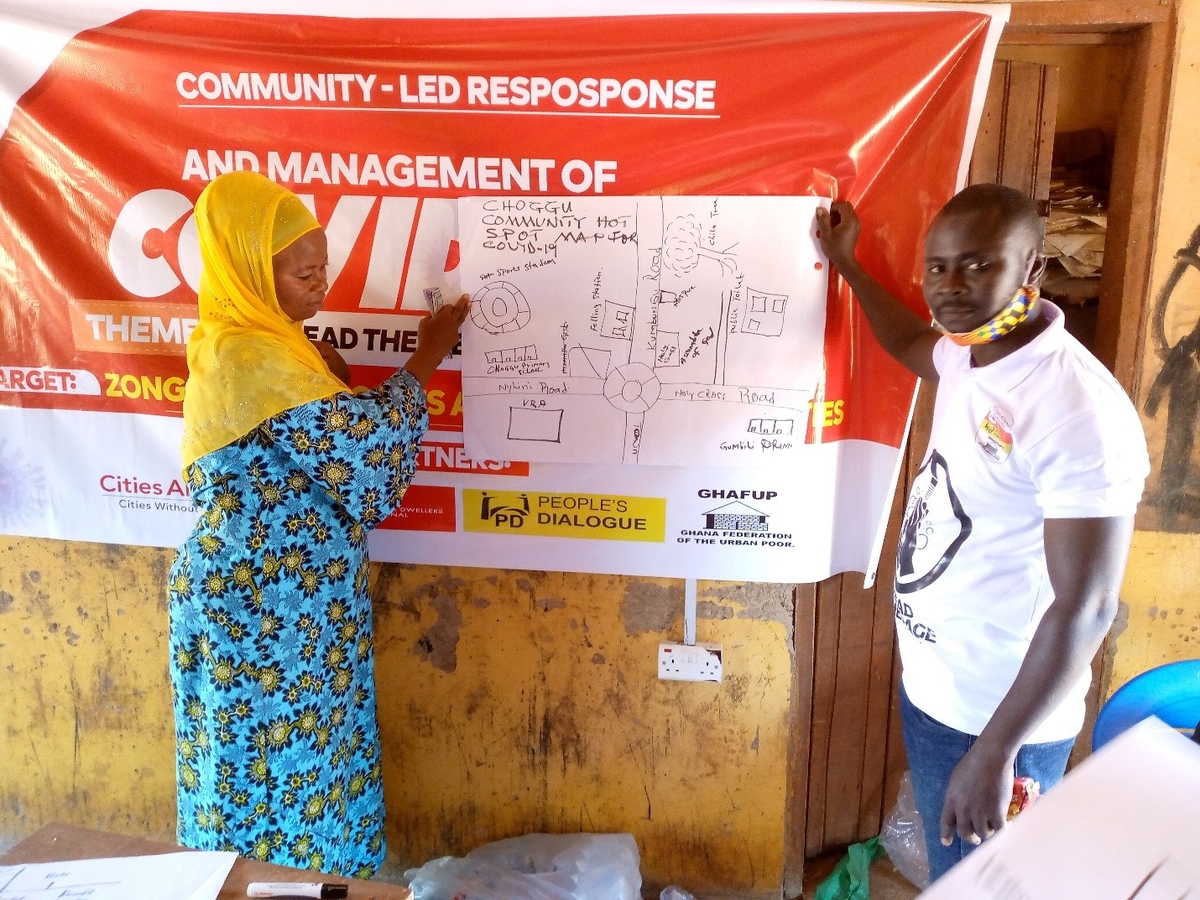
Local affiliates of SDI - comprised of slum dweller federations and their support NGOs - have decades of experience collecting data and mapping slum communities under the Know Your City campaign. As such, SDI affiliates are best positioned to update the slum level data required during this COVID-19 pandemic emergency and therefore have been partnered with to implement this initiative. Through this partnership, SDI’s slum dweller federations seek to expand the influence of community-collected data in shaping inclusive COVID-19 response and recovery efforts.
" SDI was invited by the World Bank at the height of the COVID crisis to use our Know Your City community-driven data collection tools to map amenities and services in informal settlements in five countries and eight cities. This work will support SDI's advocacy work, both at the local and global level, as we continue the critical work of seeking amenities and services for informal settlements", said Sheela Patel, Director of the Society for the Promotion of Area Resource Centers (SPARC), an affiliate of SDI in India.
COVID has made it clear more than ever that the failure of cities to provide access to clean water and safe sanitation services to the residents of informal settlements and slums is a threat to all.
Sheela Patel, Director of SPARC
Cities Alliance will provide funding to SDI’s Ghana, India, Kenya, Sierra Leone and Uganda affiliates to support them to collect and share slum level geospatial data from selected informal settlements in eight cities (Nairobi, Kisumu, Accra, Kampala, Pune, Bhubaneswar, Mumbai and Freetown) to feed into the World Bank’s hotspot prediction analysis tool.

